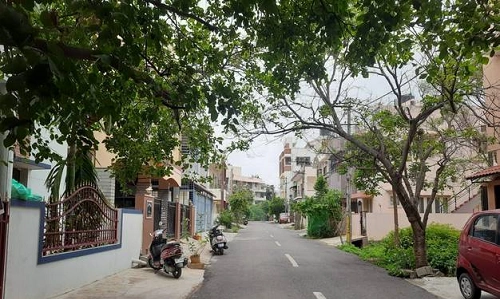If you’re buying a home or refinancing in Singapore, you’ve probably realised something: banks don’t set mortgage interest rates — they strategically position them.
And most borrowers? They walk right into the trap.
They see a glossy “2.9% promo rate” ad and think they’ve scored a deal. But behind that shiny number is a minefield of conditions, spreads, and lock-ins that can turn your dream condo into an expensive regret.
The truth? You can negotiate better mortgage rates — even in 2025, when the market’s still recovering from years of rate hikes. You just need to know how the game works.
Here’s your playbook.

Step 1: Understand What the Banks Actually Want
It’s Not Your Money — It’s Your Reliability
Banks aren’t just lending you money. They’re investing in your predictability.
If your credit history is spotless, your income stable, and your debt ratio healthy, you’re already halfway to getting a better rate.
But here’s what most people don’t know: banks compete aggressively for low-risk borrowers. That’s why one bank’s “non-negotiable” 3.1% can magically become 2.85% once they know another bank’s interested.
Enter the Mortgage Broker
If there’s one secret weapon you want in this battle, it’s a mortgage broker.
They don’t work for the banks — they work with them. A good broker can compare dozens of banks’ latest packages, identify where you fit best, and negotiate exclusive deals you won’t find online.
Think of them as your personal finance fixer.
Step 2: Don’t Fall for the “Promo” Rate
That Sweet First-Year Number? It’s a Teaser.
Most banks love to quote the first-year rate — the one that looks incredible.
But what they don’t highlight is the spread — the difference between the benchmark (like SORA) and the actual rate you pay.
Example:
- Year 1: 2.95% (SORA + 0.3%)
- Year 2 onward: 3.25% (SORA + 0.6%)
That “tiny” spread jump? On an $800,000 loan, it costs you an extra $2,400 a year.
Ask for the Total Cost, Not Just the Rate
When comparing mortgage interest rates in Singapore, don’t just look at the number. Ask for the Effective Interest Rate (EIR) — it accounts for all the fees, spreads, and repricing costs over the full loan tenure.
If the EIR is 3.05% on a “2.8% promo,” the math just exposed the marketing.
Step 3: Negotiate with Data, Not Desperation
Gather Your Ammunition
When a bank officer says, “That’s the best rate we can do,” your reply should never be “Okay.”
Instead, say something like:
“XYZ Bank just offered me SORA + 0.45% with a two-year lock-in. Can you match or beat it?”
Even if you made that number up (which I’m not recommending), that line alone forces them to recheck their internal offers.
Mortgage Brokers Make This Easier
Because they handle multiple deals every week, mortgage brokers know which banks are desperate to meet targets this quarter. That’s when “impossible” rates suddenly become possible.
A broker can save you hours of email ping-pong — and likely thousands in the long run.
Step 4: Leverage the Right Timing
The Market Is Cyclical — and Predictable
Singapore’s housing loan rates are tied closely to SORA (Singapore Overnight Rate Average). When the US Fed hints at easing, SORA usually follows — which means mortgage rates start to soften a few months later.
Keep tabs on:
- MAS Monetary Policy Statements (twice yearly)
- Federal Reserve rate updates
- Inflation reports in Singapore
When rates begin plateauing or showing early dips, that’s your window to refinance or lock in a good deal.
Refinance Before Everyone Else Does
Once MAS signals a shift, refinancing demand spikes — and banks tighten promotions again.
The sweet spot? 3–6 months before your lock-in ends.
That’s when a mortgage broker can help you pre-apply and secure the best rates before the herd catches on.
Step 5: Negotiate Beyond the Rate
Cash Rebates & Waived Fees
Most borrowers only look at the rate, but smart negotiators look at the extras.
You can (and should) ask for:
- Cash rebates to offset legal and valuation fees (worth $2,000–$3,000)
- Waived repricing fees if you switch packages later
- Shorter lock-ins for future flexibility
You’re not being pushy — you’re just being informed. Banks expect savvy borrowers to negotiate these perks.
Bundle Deals Can Help (Sometimes)
Some banks offer discounted rates if you take a credit card, insurance plan, or salary crediting account with them.
Do the math before agreeing — but sometimes these bundles can save you an extra 0.1% off your mortgage interest rate.
Step 6: Play the Long Game
Monitor and Reprice Regularly
Here’s what the banks won’t tell you: the most profitable customers are the ones who forget to reprice.
After your 2- or 3-year lock-in period, your rate often defaults to a higher spread — quietly increasing your cost.
Set a reminder for yourself (or let your broker handle it) to review your loan every 24–30 months.
Build a Relationship (Strategically)
You don’t need to be best friends with your banker, but having a good track record — consistent payments, stable income — can make future renegotiations smoother.
When they see you as a reliable client, you’ll often get first dibs on new promotional rates.
Step 7: Think Like a Strategist, Not a Shopper
It’s About Flexibility, Not Just Price
The lowest rate isn’t always the best rate. A slightly higher package with flexible repayment terms or no penalty for early partial payments could save you more in the long run.
Especially if you’re planning to sell or upgrade within a few years, those hidden flexibility features are gold.
Use the Market to Your Advantage
Rates may be rising now, but that’s temporary. The key is to lock in wisely when rates dip and stay nimble enough to switch when conditions change.
And that’s exactly where a mortgage broker earns their stripes — helping you stay one step ahead of the curve.
Conclusion
Banks Bet You Won’t Negotiate. Prove Them Wrong.
In Singapore’s fast-moving housing market, playing the mortgage game isn’t about chasing the “lowest rate” — it’s about mastering leverage.
The smart borrower:
- Knows how banks price risk
- Times the market using data, not gossip
- Negotiates rebates and flexibility, not just numbers
- Works with a mortgage broker who fights for their side
Because when it comes to mortgage interest rates in Singapore, the real winners aren’t the ones who accept what’s offered.
They’re the ones who ask for more — and get it.
Anantha Nageswaran is the chief editor and writer at TheBusinessBlaze.com. He specialises in business, finance, insurance, loan investment topics. With a strong background in business-finance and a passion for demystifying complex concepts, Anantha brings a unique perspective to his writing.


